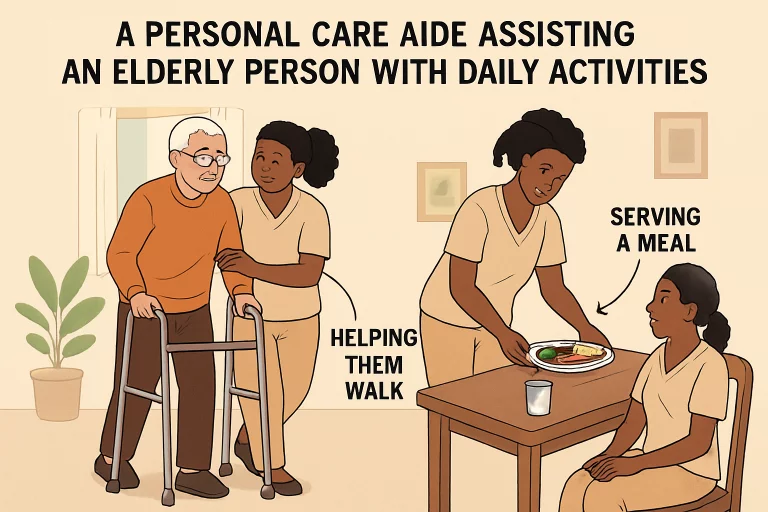Understanding the Role of a Personal Care Aide
Personal Care Aides (PCAs) assist individuals with chronic illnesses, disabilities, or age-related limitations in improving their quality of life by providing emotional support and companionship. They help with daily tasks such as bathing, dressing, grooming, and housekeeping, thereby ensuring safety, dignity, and independence. PCAs work in diverse settings, tailoring their services to meet the individual needs of their clients. Their consistent presence often leads to better health outcomes for clients.
For individuals considering a role as a PCA, undertaking proper foundational training is a critical first step. Many choose approved, flexible learning options such as PCA Online Courses, which are designed to accommodate various schedules and can be completed at your own pace. These courses not only address core caregiving skills but also provide an understanding of legal and ethical considerations, helping you meet or exceed state-mandated education requirements.
Essential Skills for Success
Success as a Personal Care Aide is about more than just technical competence; it requires a harmonious blend of emotional intelligence, adaptability, and practical skills.
- Empathy and Compassion: PCAs routinely support individuals who may be experiencing vulnerability, loneliness, or frustration due to their circumstances. Exhibiting patience, kindness, and genuine care goes a long way toward building trust and rapport with clients, enhancing their sense of security.
- Communication Skills: Clear and respectful communication is imperative for understanding clients’ preferences and needs. The ability to listen attentively and convey information accurately also ensures seamless collaboration with family members and healthcare professionals, preventing misunderstandings and fostering a team-centered approach to care.
- Physical Stamina: The physical aspect of personal care work cannot be understated. Tasks such as assisting with mobility, lifting, transferring, and supporting clients require good physical health, stamina, and proper body mechanics to prevent injury to both the aide and client.
- Time Management: Many PCAs juggle multiple responsibilities across several clients or residents each day. Being able to prioritize, plan, and complete tasks efficiently ensures that every client receives attentive and timely care without feeling rushed or overlooked.
Steps to Becoming a Personal Care Aide
- Research State Requirements: Start your journey by identifying the qualification and credentialing standards in your state. State health departments and reputable online resources can help you understand if a license, registration, background check, or other documentation is needed before starting your training or employment.
- Complete Necessary Training: Enroll in a qualified, state-approved training program that covers the foundational skills and theoretical knowledge required to work safely and empathetically as a PCA.
- Obtain Certification: If your state mandates certification, diligently prepare for and pass the competency examinations. This may involve answering questions about client care and demonstrating hands-on proficiency in essential skills.
- Gain Experience: Once trained and certified, pursue entry-level positions with home care agencies, residential care facilities, or private clients. Real-world experience provides valuable insights, promotes growth, and can lead to progressive responsibility, including mentorship or supervisory positions in the future. Many professionals begin their careers part-time before transitioning to full-time roles or pursuing further education within the healthcare continuum.

Challenges in the Field
Personal Care Aide careers present challenges, including low salaries, physical exertion, emotionally demanding client interactions, and high turnover rates. Addressing these issues requires advocacy and policy efforts at the state and federal levels. However, positive change is on the horizon as policymakers, advocacy groups, and healthcare leaders work to improve compensation, training opportunities, and workplace protections for personal care aides. Increased investment, better benefits, and formal recognition of the essential nature of PCA work can foster a safer, more stable, and more skilled workforce for years to come. For more on these ongoing efforts to improve work conditions and pay for PCAs, visit AP News.

